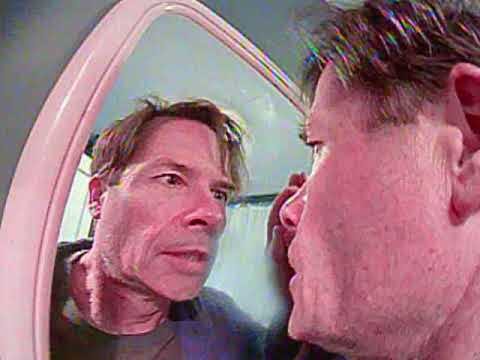It takes no time at all to figure out why Radiohead omitted “Follow Me Around” from Kid A or Amnesiac. Recorded during the 1999-2000 sessions that yielded both of those chilling/enduring albums, the song is a typical Tuesday open-mic singer-songwriter thing – lots of acoustic guitar strumming on a simple chord pattern, with a repetitive refrain.
Tucked between the more bracing post-rock experiments of Kid Amnesiae, the rarities disc that surfaced last week, “Follow Me Around” might strike faithful listeners as a negative vault rarity, as it’s precisely the kind of blunt statement Radiohead was trying to avoid in the aftermath of Ok Computer. Sure it’s plenty eerie – a tone underscored by the must-see drone-surveillance video – but closer to something the band would have done years earlier, circa The Bends.
At the same time, “Follow Me Around” provides listeners with a useful point of comparison about creativity then and now in the rock space: The music made by so many of Radiohead’s contemporaries was – and is – structurally similar to this song, a basic foursquare proposition, blah and perfunctory. This track offers a measure for how far and how rapidly Radiohead evolved away from all manner of rock ritual; it’s a location marker that underscores the band’s dramatic wholesale evolution, which happened at warp speed and perhaps as a result remains underheralded.
At these sessions, Radiohead dispensed with pretty much all of the trappings of rock record-making, from the structure of the songs to the sound of the guitars to the position of vocals in the mix. The band’s emphasis shifted to sustained inquiries into tone and texture – the rhythm of some tunes might come from wooden spoons tapped on a tabletop, or samples reversed to emulate the chopping of helicopter blades. Using both common and unorthodox sound processing, vocalist/lyricist Thom Yorke and his cohorts massaged these sounds over and over again, building small clusters of instruments into towering ice mountains and groaning gut-wrenching wails. The sounds themselves transformed the granular into the fantastic, suggesting melodic threads or groove ideas. And the musicians reworked and resampled and recombined them until those sounds morphed further — into beautiful, sometimes terrifying emotional landscapes.
The songs unfolded from there. Inevitably, they are not exactly rock songs – closer to laments and elegies and brooding minor-key deliberations on where, exactly, the big wrong turn was taken. Yorke had already written lyrics in the key of existential disquiet; on these records, his expressions of fear and wariness become just another part of a larger maelstrom, magnified by each foreboding bell and slithery bassline, every last odd accompanying sound.
On headphones, the first thing that hit me was the tension, the brilliant deployment and harnessing of extravagant dissonances. You don’t have to drop in when Yorke is singing to know it’s Radiohead: The knotted extended chords and long arching sustains are signatures, part of the DNA the band was developing here and would pursue further subsequently. Rarities can often be dismissed as abandoned experiments, but the ones here – “Untitled V.1,” the disquieting “Fog” (first performed live as “Alligators in New York Sewers”), the mashup “Pulk/Pull (True Love Waits Version)” and others – speak to Radiohead’s ongoing explorations of scale (just how much grandeur should his track have?) and mood (how much dystopia here?), as well as its longterm quest to elude capture via genre tags and shorthand descriptors. Yorke puts all that into few words, repeatedly talking about the urgent need to erase himself from the frame and disappear; the vivid, dizzyingly coloristic, defiantly un-rocklike instrumental tapestries provide him ample cover.
I remember being part of spirited arguments with critics about Radiohead in the years following OK Computer, in that blissful pre-Facebook era when it was possible to disagree in real time and learn something while doing it. There were those covering popular music for large publications who shrugged the band off as outliers, basically saying that they didn’t particularly care for the music -- or see need to pay close attention to its future development. Now, after encountering still more evidence of Radiohead’s radical, subversive expansion of the very canvas of popular music, that attitude strikes me as close to malpractice.
Why yes, we have a fancy digital suggestion box. Share your favorite Underloved/Overlooked records here: echolocatormusic@gmail.com.
Please consider subscribing (it’s free!). And…..please spread the word! (This only works via word of mouth!)




